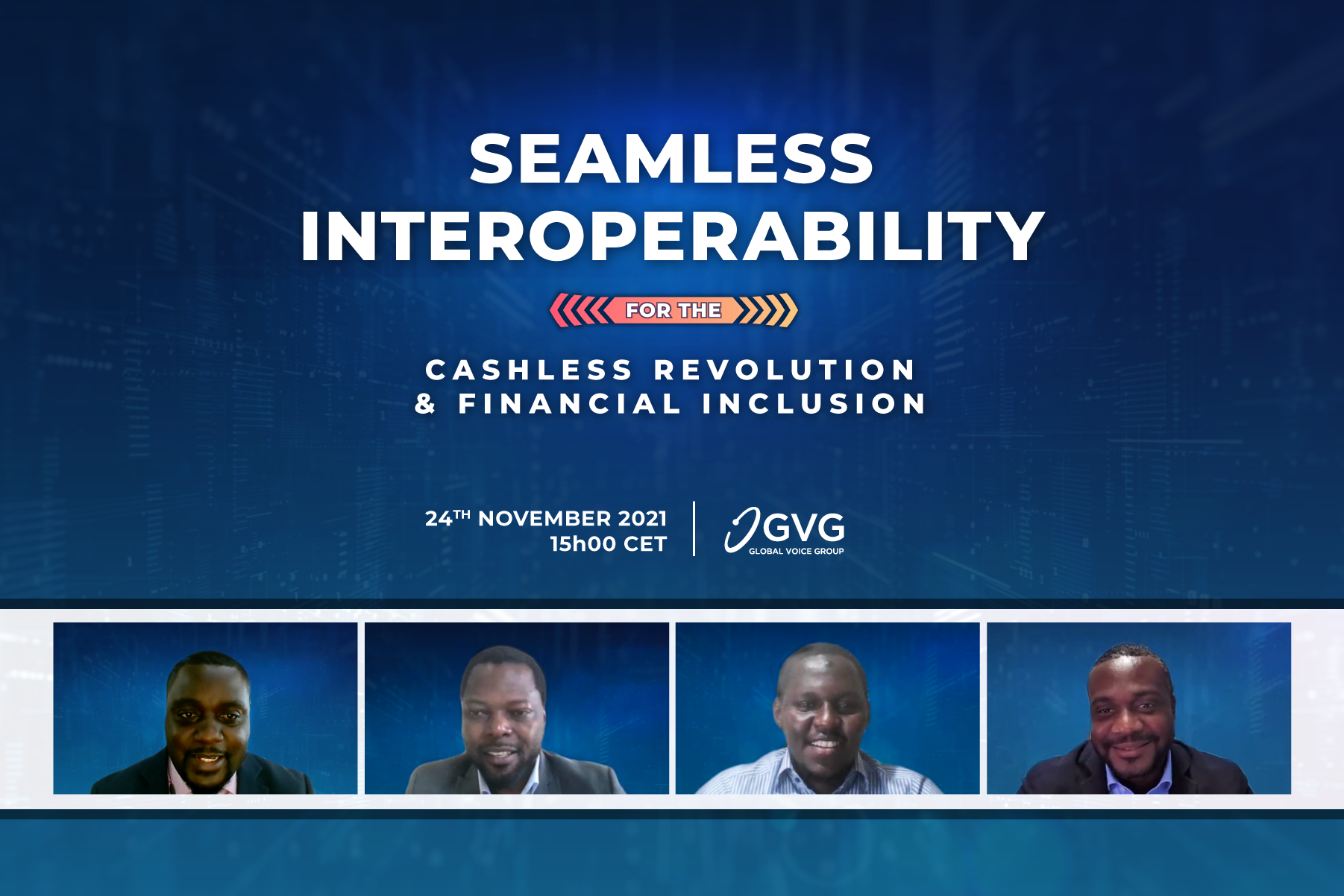
Exploring the interoperability situation in Africa
Interoperability has been flagged as a significant factor in the development of the cashless economy and of financial inclusion. Indeed, among many other benefits, it can help reduce the cost of incoming and outgoing remittances. This would help promote this precious resource, which has proved to be more effective than international aid. Interoperability can also unify a greatly fragmented payment ecosystem, by facilitating the integration of multiple online payment platforms.
Interoperability’s potential thus prompted GVG, as a trusted provider of RegTech and Big Data solutions to governments and authorities, to hold a roundtable on this topic yesterday. The purpose of this event was to explore the challenges and achievements related to interoperability in Africa, with the participation of leading experts in the field: Kennedy Luhombo, Senior Business Development Leader at Visa, the well-established multinational financial services corporation, and Andrew Mutua, CEO, and founder of Pesakit. Pesakit is the award-winning startup behind the app of the same name, which allows mobile money agents to provide affordable financial and digital services in their community. The moderator, Aby Agina, Business Editor at Kenya Television Network, facilitated a lively yet relaxed discussion.
Alongside James Claude, GVG’s CEO, the panelists called on their respective insight and expertise to answer crucial topical questions regarding:
- the barriers to interoperability in Africa,
- the continent’s level of readiness to implement interoperability at the state level,
- interoperability’s potential to promote financial inclusion and to fight fraud and
- the role of governments and central banks.
The panelists agreed that Africa was technologically and socially ready for interoperability and that in fact, the shift was already taking place, with relevant models already in operation. However, as Kennedy Luhombo pointed out, there is room for improvement. In that respect, James highlighted the crucial role of the regulators, as the government entities responsible for the creation of an appropriate regulatory framework. Kennedy Luhombo, for his part, advocated the need for increased data security, while Andrew Mutua emphasized the importance of quality and innovation as regards the services offered to users in an interoperability context.
At GVG, we consider interoperability as the key to making digital payments more secure, convenient, and cheaper. We are also fully aware of the need to support any interoperability project with the implementation of appropriate technologies. That is why we designed, and recently launched, our very own seamless payment interoperability platform, TransFin. This platform, which is aimed at governments and central banks, provides a secure and efficient gateway for the integration of various online payment systems. As such, it enables the interoperability of domestic payments, as well as the management and streamlining of payment processes.
The focus on the consumers is an important topic that arose from this roundtable. Indeed, it is essential that the consumers “buy into” interoperability if they are to make use of it. The consensus was that a strong regulatory framework, enhanced security, and innovative services would help engage the consumers, which would, in turn, drive financial inclusion.
Want to watch the whole roundtable? Click here.
